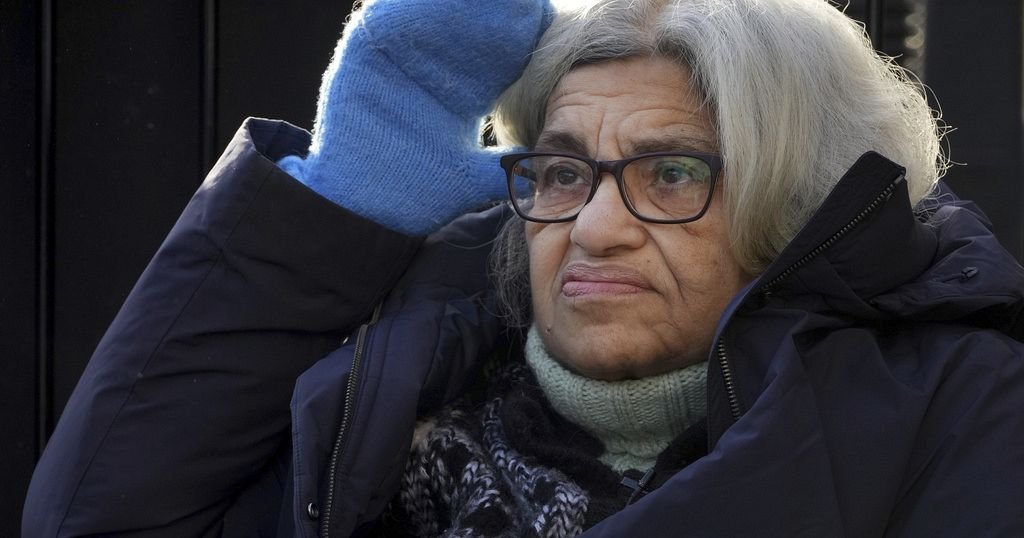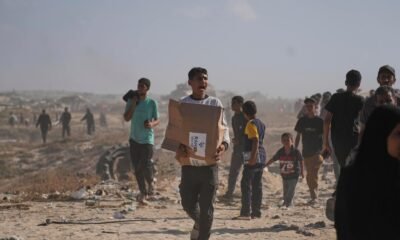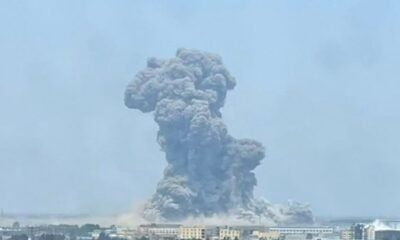Africa
Pope Francis: A decade of reform, controversy, and compassion
Argentine Cardinal Jorge Mario Bergoglio became the first Pope from the Americas and the first Jesuit pontiff, choosing the name Francis in honor of Saint Francis of Assisi. His election raised expectations of significant reforms within the Catholic Church.
With a background in chemistry, Francis was ordained a priest in 1969 and later led the Jesuit order in Argentina. He positioned himself as the Pope of the poor, advocating for the homeless, migrants, and refugees.
“How arid and inhospitable a city becomes once it loses compassion… You are not the marginalized—you are at the center of the Church’s heart.” – Pope Francis.
Francis confronted clerical sex abuse, admitting the Church’s silence and complicity in protecting abusive priests. He lifted secrecy laws, ordered full cooperation with justice, and supported LGBTQ+ rights, backing same-sex civil unions.
However, his stance on abortion remained firm: “Doctors that do this are hitmen. And on this, you cannot argue.” – Pope Francis
Francis addressed Vatican banking scandals, launching an ethics commission to oversee investments. He also fostered interfaith dialogue, strengthening ties with the Russian Orthodox Church—a relationship later strained by the Ukraine war, where he denounced Patriarch Kirill as ‘Putin’s altar boy.’
Francis met with Ukrainian President Volodymyr Zelenskyy and sent an envoy to mediate peace.
“War is always a defeat.” – Pope Francis
Despite declining health, Francis continued shaping the Church’s future, appointing 21 new cardinals, increasing the likelihood of a successor aligned with his vision. However, he struggled with a loss of faith in Latin America, a region close to his heart.
As his pontificate progressed, Pope Francis remained a polarizing yet transformative leader, leaving a profound impact on the Catholic Church.
Africa
DR Congo Justice Minister under fire over $19M transfer

In the Democratic Republic of Congo, pressure is mounting on Justice Minister Constant Mutamba after explosive allegations over a multi-million dollar no-bid contract and suspicious fund transfers.
On Tuesday, lawmakers grilled the Attorney General for six hours and Mutamba for five. The focus: a $29 million deal awarded without competition, and a $19 million payment to Zion Construction—wired just one day after the company opened its bank account.
The funds didn’t come from the state treasury, but from FRIVAO, the agency managing $325 million in war reparations from Uganda. That agency falls under Mutamba’s direct authority. Defending himself, the minister admitted to “errors” and asked for forgiveness—but claimed he’s the target of political revenge.
He also blamed tensions with Prime Minister Judith Suminwa for a toxic work climate. Lawmakers say the accusations are serious, and the judiciary must be allowed to act. Mutamba’s future in government now hangs in the balance.
Africa
U.K-Egypt: Mother of jailed activist hospitalised amid hunger strike

The mother of a pro-democracy activist imprisoned in Egypt is seriously ill in a London hospital after resuming a hunger strike aimed at pressing for her son’s release, her family said Friday. Laila Soueif was admitted to St Thomas’s Hospital on Thursday night with dangerously low blood sugar levels. “The bottom line is, we’re losing her,” her daughter, Sanaa Souief, said outside the hospital. She added: “(Prime Minister) Keir Starmer needs to act now. Not tomorrow, not Monday, now, right now.”
Laila Soueif has been on hunger strike since September 29 to protest the imprisonment of Alaa Abdel-Fattah, a British-Egyptian dual national who has been in prison in Egypt since September 2019. He was sentenced in December 2021 to five years in prison for spreading false news and should have been released last year, but Egyptian authorities refused to count the more than two years he had spent in pre-trial detention and ordered him held until January 2027.
Laila Souief spent weeks camped outside Britain’s Foreign Office and the prime minister’s Downing Street office to highlight her son’s case. She was previously admitted to hospital in February, with doctors warning she was at “high risk of sudden death.” She agreed in early March to move to a partial hunger strike after Starmer pledged to press Egypt to release her son. She resumed her full hunger strike on May 20, saying: “Nothing has changed, nothing is happening.”
The family says Souief has lost 42% of her bodyweight during the 242-day hunger strike. They say she has received glucagon treatment, which induces the liver to break down stored fat to obtain glucose, but continues to refuse glucose, which would provide her with calories. Abdel-Fattah has been on his own hunger strike for 90 days following his mother’s admission to hospital in February. Thousands of critics of Egyptian President Abdel Fattah el-Sissi have been locked up under dire conditions after unjust trials, human rights groups say.
The British government said that Starmer raised Abdel-Fattah’s case in a call with the Egyptian president last week, and Middle East Minister Hamish Falconer discussed it with Egypt’s Foreign Minister Badr Abdelatty on Sunday. “We are concerned to hear of Laila’s hospitalization. We remain in regular contact with Laila and her family and have checked on her welfare,” the Foreign Office said in a statement. “We are committed to securing Alaa Abdel-Fattah’s release and continue to press for this at the highest levels of the Egyptian government.”
Africa
Deadly floods sweep Nigeria | Africanews

Torrents of predawn rain unleashed flooding that killed at least 150 people in a market town where northern Nigerian farmers sell their wares to traders from the south, officials said Friday as they predicted that the death toll would grow. The Nigerian Hydrological Services Agency did not immediately say how much rain fell after midnight Thursday in the town of Mokwa, which sits in the state of Niger more than 180 miles (300 kilometers) west of Abuja, capital of Africa’s most populous nation. Communities in northern Nigeria have been experiencing prolonged dry spells worsened by climate change and excessive rainfall that leads to severe flooding during the brief wet season. In videos and photos on social media, floodwaters covered neighborhoods and homes were submerged, with their roofs barely visible above the brown currents. Waist-deep in water, residents tried to salvage what they could, or rescue others. Mokwa, nearly 380 kilometers (236 miles) west of Abuja, is a major meeting point where traders from the south buy beans, onions and other food from farmers in the north. A community leader from the Mokwa local government Area, Alhaji Aliki Musa, says this type of flood is seasonal and its not ordinary. “The water is like spiritual water which used to come but it’s seasonal…there’s not much water in Mokwa that will bring that flood,” he said. In September, torrential rains and a dam collapse in the northeastern city of Maiduguri caused severe flooding that left at least 30 people dead and displaced millions, worsening the humanitarian crisis caused by the Boko Haram, a self-proclaimed jihadist militant group based in northeastern Nigeria.
-

 Africa4 days ago
Africa4 days agoSurvivor of Liverpool car ramming talks of shock and panic
-

 Sports3 days ago
Sports3 days agoThe Knicks are bringing hope and title dreams back to New York after years in the doldrums
-

 Lifestyle3 days ago
Lifestyle3 days agoChildren and careers: Talking to kids about what they want to be when they grow up
-

 Lifestyle4 days ago
Lifestyle4 days agoHow to decorate a patio, balcony or other small outdoor space
-

 Lifestyle3 days ago
Lifestyle3 days agoFaizan Zaki hopes to go from spelling bee runner-up to champ
-

 Middle East4 days ago
Middle East4 days agoGaza’s aid system isn’t broken. It’s working exactly as designed | Humanitarian Crises
-

 Asia5 days ago
Asia5 days agoHuge blast rocks Chinese chemical plant, authorities launch rescue operation
-

 Europe5 days ago
Europe5 days agoMacron’s marital shove disappears from French airwaves




